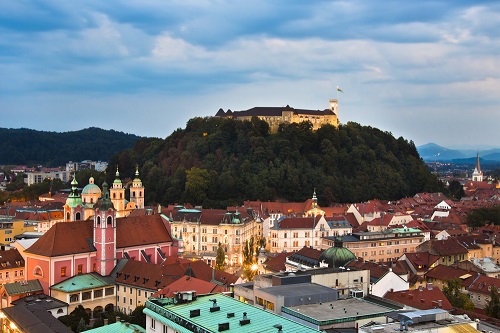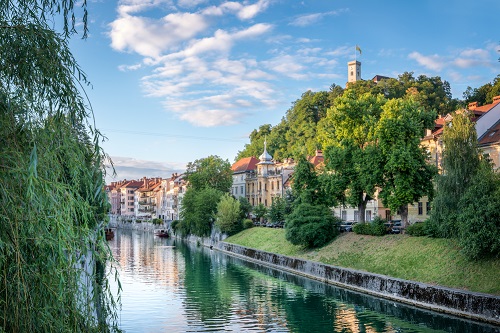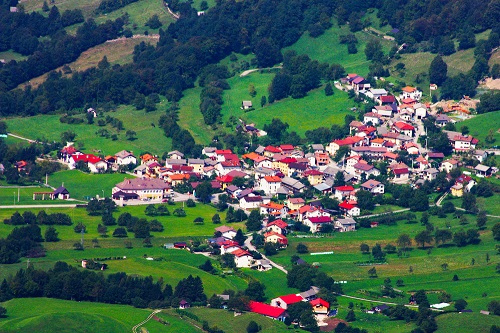Mental health problems are prevalent the world over and can pose a real challenge to individuals who suffer from them. For expats, these issues may feel compounded, due to immigrant-related socio-economic factors, such as difficulties in securing employment. Expats may also be more vulnerable to mental health problems, because of the emotional upheaval involved in leaving friends and family behind in their home countries.
Depression is one of the most common mental health concerns. According to the World Health Organisation (WHO), as many as 40 million people (or 4.3% of the population) are affected by this in Europe alone. In Slovenia, the figure for chronic depression, as of 2017, was one in every 11 individuals. Other prevalent conditions include anxiety disorders, drug and alcohol misuse, bipolar disorders, and schizophrenia.
If you are resident in Slovenia, or are looking to make the move, and you suffer from a new or existing mental health condition, then what level of care can you expect?

Mental health care in Slovenia
Slovenia has a well-funded healthcare system, with clean, modern facilities, highly trained staff, and well-equipped clinics. The healthcare system is funded by compulsory health insurance, which is contributed to by employers and employees, alongside the voluntary contributions required of most adults.
Usually, mental health conditions will be diagnosed and treated by a doctor. In the first instance, you should contact your local GP and describe your symptoms. You may be prescribed medication to help control your symptoms, or you may be referred for more specialist diagnostic care.
In saying this, you do not need a GP referral in order to access psychiatric care. In an emergency, you should dial 112 for an ambulance, or contact one of the following organisations:
- Emergency psychiatric clinic, Njegoševa 4, Ljubljana
- Walk-in psychiatric service, mental health centre, Grablovičeva 44b, Ljubljana
- Centre for clinical psychiatry, Studenec 48, Ljubljana
- Begunje Psychiatric Hospital, Begunje 55, Begunje na Gorenjskem
- Ormož Psychiatric Hospital, Ptujska cesta 33, Ormož
- Vojnik Psychiatric Hospital, Celjska cesta 37, Vojnik
- Idrija Psychiatric Hospital, Pot sv. Antona 49, Idrija
As well as the above major psychiatric hospitals, Slovenia has 15 certified health resorts that combine modern medical procedures with alternative therapies. These alternative practices often centre around the healing benefits of water and minerals, including seawater, peat and mud.
Compulsory health insurance
Compulsory health insurance is provided for all residents, including foreign nationals who are working in the country and paying taxes, by the Health Insurance Institute of Slovenia (Zavod Za Zdravstveno Zavarovanje Slovenije). Anyone working in Slovenia, including individuals who are self-employed or are retired and in receipt of a qualifying pension, are insured under this scheme.
Employee dependants are also insured, provided they are resident in Slovenia and under the age of 18.

Voluntary health insurance
While compulsory health insurance covers access to many key services, others are only available under voluntary health insurance (VHI), which must be paid for separately. To benefit from voluntary health insurance, you must apply via a Slovenian insurance company.
The vast majority of Slovenian residents have additional coverage to access services such as: private hospitals and health spas, some more complicated medical aids and diagnostic tests, high-standard dental care, and cosmetic surgery. Children are not required to have VHI, as they are covered under compulsory health insurance.
Visiting a doctor
In order to see a doctor in Slovenia, you must have a health insurance card. The Health Insurance Institute of Slovenia issues a card free of charge to all residents when they obtain compulsory health insurance for the first time. You will need to show your health insurance card at every appointment with a doctor or dentist, as well as every time you visit a pharmacy to collect prescription medications.
Preventative measures
In order to help safeguard your mental health, you may want to consider some preventative measures that could help make your move to your new country easier. These could include:
- Learning the language – one huge factor for expats is the struggle to make new friends in a country where language is a barrier. To avoid this, you could enrol in language classes when you arrive.
- Consider counselling – moving to a new country is never easy, particularly if you have had to move for work and feel out of your depth. Speaking to a professional may help you order your thoughts and process your emotions.
- Keep in touch with loved ones back home – do not underestimate the power of feeling connected to those you love and miss in your home country. Make time for regular video calls to check in with each other, or keep the conversations going with texts and emails.
- Seek help – if you can feel yourself struggling, reach out to an expat support group.

